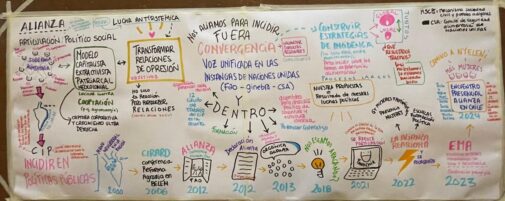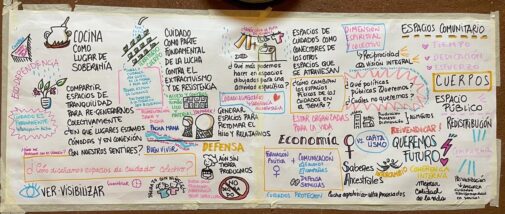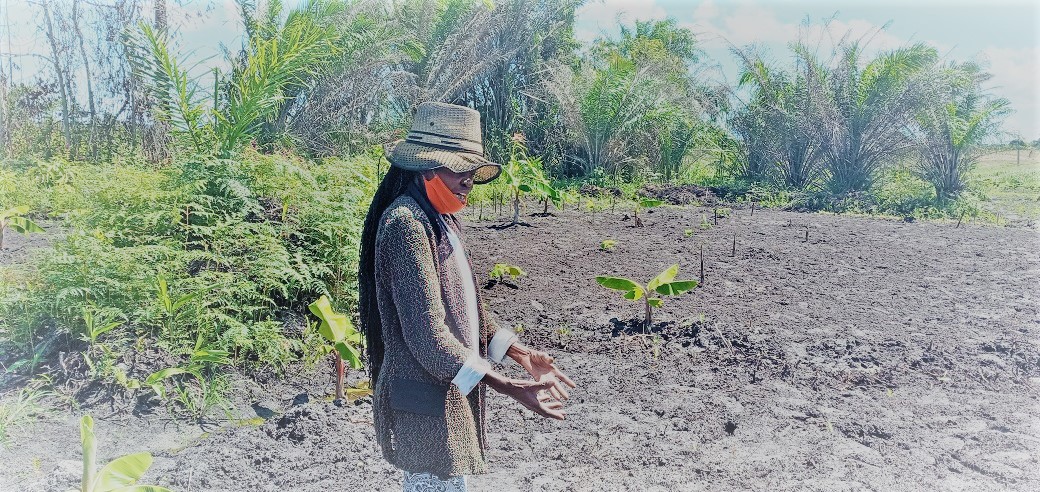Sowing Life and Resistance
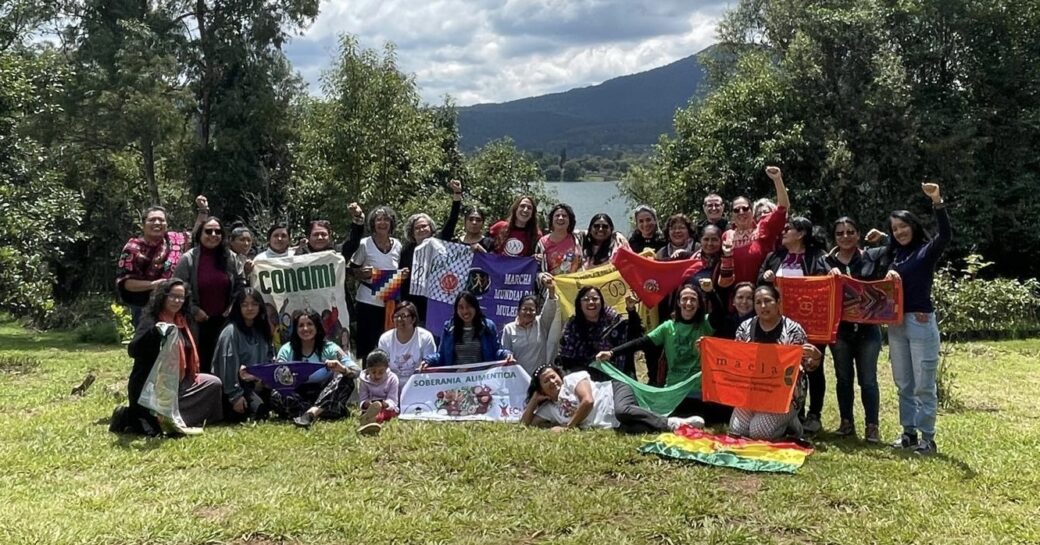
Women from around Latin America gathered to debate food sovereignty ahead of Nyéléni
By Inés Franceschelli, Heñói Centro de Estudios / Global Forest Coalition
July 22, 2025
More than 30 women peasant and Indigenous leaders and activists in defense of the environment participated in the second in-person meeting of the Women’s School of the Continental Alliance for Food Sovereignty in Latin America and the Caribbean (known as EMA in Spanish).
From July 18 to 21, we engaged in an intense debate on how to strengthen women’s political participation in defending the right to adequate food and nutrition.
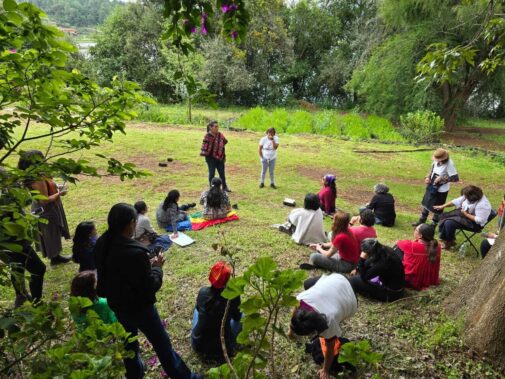
The Women’s School aims to strengthen the activist struggles of women in its networks to advance the search for a new food paradigm that overcomes the current global, capitalist, colonial, racist, and patriarchal agri-food system.
The discussions were focused on two main themes:
- The need to converge and unify our approach in order to influence our own networks and decision-making spaces at the local, national, regional, and global levels.
- Care work—generally undertaken by women in all their diversity—as a fundamental part of the fight against extractivism and a source of strength for resistance.
The participants represented the various networks that make up the Continental Alliance: CLOC-La Vía Campesina, Latin American Agroecological Movement (MAELA), FoodFirst Information and Action Network (FIAN), Continental Network of Indigenous Women (ECMIA), World March of Women, Friends of the Earth Latin America and the Caribbean (ATALC), International Indian Treaty Council (CITI), Movement for the Right to Health, World Forum of Fisherfolk, Global Forest Coalition (GFC), among others. Voices were heard from Mexico, Costa Rica, El Salvador, Nicaragua, Brazil, Panama, Paraguay, Bolivia, Argentina, Guatemala, Colombia, and Ecuador.
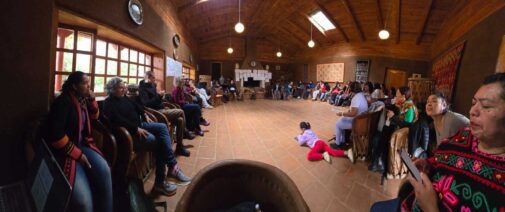
Some of the participants will carry the voices of the region to the Third Nyéléni World Forum of the International Movement for Food Sovereignty, to be held in Sri Lanka in September 2025. This forum will bring together Indigenous peoples, peasants, fisherfolk, workers, pastoralists, feminists, grassroots environmentalists, migrants, nomadic peoples, impoverished urban populations, social and solidarity economy activists, popular health activists, consumers, researchers, and artists. Together, they are organizing to build a common political agenda for popular power and the transformation of the capitalist, patriarchal, imperialist, colonialist, racist, classist, and supremacist system.
The Nyéléni Forum is part of a process of movements and organizations that share values and a political vision that encompasses food sovereignty and agroecology, popular feminism, sovereignty and self-determination of peoples over their territories, social, economic, environmental, and health justice, feminist economics, and internationalist solidarity. It is a process free from discrimination and harassment that seeks to build unity for action from diversity, based on knowledge sharing. It recognizes the indivisibility of society and nature and embraces the spiritual principle underlying the perspectives of Indigenous peoples, for whom the protection of Mother Earth is fundamental.
Latin America has a lot to contribute to global grassroots movements for food sovereignty, and our movements will in turn be nourished by the many examples of women’s struggles for collective liberation and wellbeing at Nyeleni.
